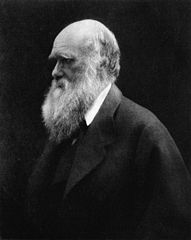Charles Darwin

Charles Darwin (1809-1882) was an English naturalist and geologist, best known for his theory of evolution as published in his 1859 book On the Origin of Species. He suffered from ill health for most of his adult life, but remained undiagnosed. It has been theorised that he suffered from myalgic encephalomyelitis/chronic fatigue syndrome (ME/CFS), although many other diseases have also been suggested as possibilities.
Presentation of illness
For over forty years Darwin suffered intermittently from various combinations of symptoms such as: malaise, vertigo, dizziness, muscle spasms and tremors, vomiting, cramps and colics, bloating and nocturnal intestinal gas, headaches, alterations of vision, severe tiredness, nervous exhaustion, dyspnea, skin problems such as blisters all over the scalp and eczema, crying, anxiety, sensation of impending death and loss of consciousness, fainting, tachycardia, insomnia, tinnitus, and depression.
Theories
Chronic Fatigue Syndrome
- Did Darwin have ME/CFS? - Zaher Nahle
- Darwin’s illness revisited: misconceptions or facts? Comment by Norman Booth
- Robert Youngson proposes in his monograph Darwin's Mysterious Illness that Darwin suffered from CFS.
Other suggestions
- Asperger's syndrome or other pervasive developmental disorder
- Chagas disease
- Crohn's disease
- Cyclic vomiting syndrome
- Lactose intolerance
- Lupus erythematosus
- Ménière's disease
- Tick-borne disease
- Panic disorder with agoraphobia
- Obsessive–compulsive disorder
- Psychosomatic disease
- Postural Orthostatic Tachycardia Syndrome
- Orthostatic intolerance
- Helicobacter pylori
- MELAS syndrome
Learn more
- Wikipedia - Charles Darwin's health
- Darwin's Mysterious Illness - Robert Youngson
- The illness of Charles Darwin: a retrospective diagnosis.

